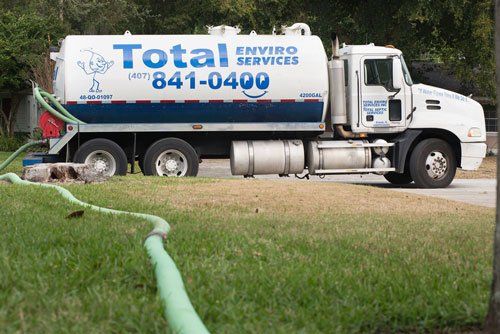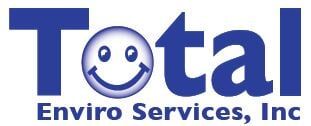Septic Questions and Answers in Central Florida

Ask Us A Question
Frequently Asked Questions
Plumbing from your dwelling goes into the septic tank by gravity. The septic tank holds the liquids and solids that come from your residential home or commercial business. Once in the tank, the liquid effluent separates from the solids and leaves a crust at the top and solids settle at the bottom. From the tank, the liquid is dispersed into the drain field by gravity or by a pump station for absorption.
Generally you will need a pumpout if your toilets won’t flush or if dirty water is coming back up into your dwelling through your plumbing system. A plumber is generally needed if you have an isolated problem (e.g., one toilet will flush and the other won’t; your shower is backed up and your sink isn’t; your laundry room or kitchen is backed up and nowhere else is).
This generally means that you might need to pump out the septic tank, or that you might have a clog in your line, excessive solids in the tank, or a bad drain field. You should contact a licensed septic contractor if you have these problems.
It is recommended to pump out your septic tank when you are backing up or are not able to flush toilets. For general maintenance of your septic system, you should pump out your tank every two or three years depending on how many people live in the dwelling and the daily water usage.
If you do not pump out your tank, you can have clogs in your line, you can damage your drain field, and your house can back up, causing sewage overflow issues. Proper maintenance saves you money.
You should have a licensed contractor come to evaluate your problem.
If you have a sewer charge on your water bill, typically it means you are on city sewer.
A filter is a device used in the outlet pipe. It is designed to prevent solids from entering your drain field. Using a filter usually extends the life of your drain field system with proper maintenance. Filters need to be cleaned at different lengths of time depending on what you put into the septic system.
A drain field is the area in your yard where the sewage from the tank flows to be absorbed into the soil. A drain field works by accepting the liquid sewage from the septic tank and then going through trenches/chambers to disperse evenly into the soil, where microorganisms provide a treatment to the wastewater before leaving into the water table.
A septic tank holds anything you pour into your drains and flush down your toilet, including all the wastewater from your home. The wastewater from your home goes into the main line for your house and flows into your tank. As the wastewater decomposes, the heaver solids (toilet paper/paper towels/non-biodegradable waste) settle to the bottom, forming sludge. The lighter solids (oils/greases) float to the top forming a scum or crust. The liquid effluent stays in the middle and flows into the drain field.
Rejuvenation was originally designed to be preventive maintenance; it is used now as an alternate repair method for your drain field to extend its life. Ask your licensed septic contractor about specifics.
A real estate inspection is recommended and is sometimes required by lenders prior to purchasing a home or business. We inspect the entire septic system and note the conditions of each part. A county inspection is usually required when making a modification to the home or business and need to pull a permit. The county inspection verifies the current specifications of the septic system on a 4015 form. Only a state-licensed septic contractor, a licensed engineer and a certified health professional can perform a county inspection.
Coffee grounds, disposable diapers, sanitary napkins, cigarette butts, fats, grease or oil, paints or thinners, antibiotics, dental floss, kitty litter, tampons or pads, condoms, paper towels, etc. These items do not decompose well and can cause backups. Don’t treat your toilet as a trash can.
- A tiny drip of water from your faucet throughout the day loses about 15 gallons of water a day.
- A quarter-of-an-inch stream of water from your faucet throughout the day loses about 1,600 gallons of water a day.
Please fix any leaking faucets or toilets to help extend the life of your septic system and make your home more environmentally efficient.
Information About Septic Systems
Watch the video below for general information about septic systems. It may answer some of your questions!
Call Total Enviro Services Inc. dba: Total Septic Service today at (407) 841-0400

